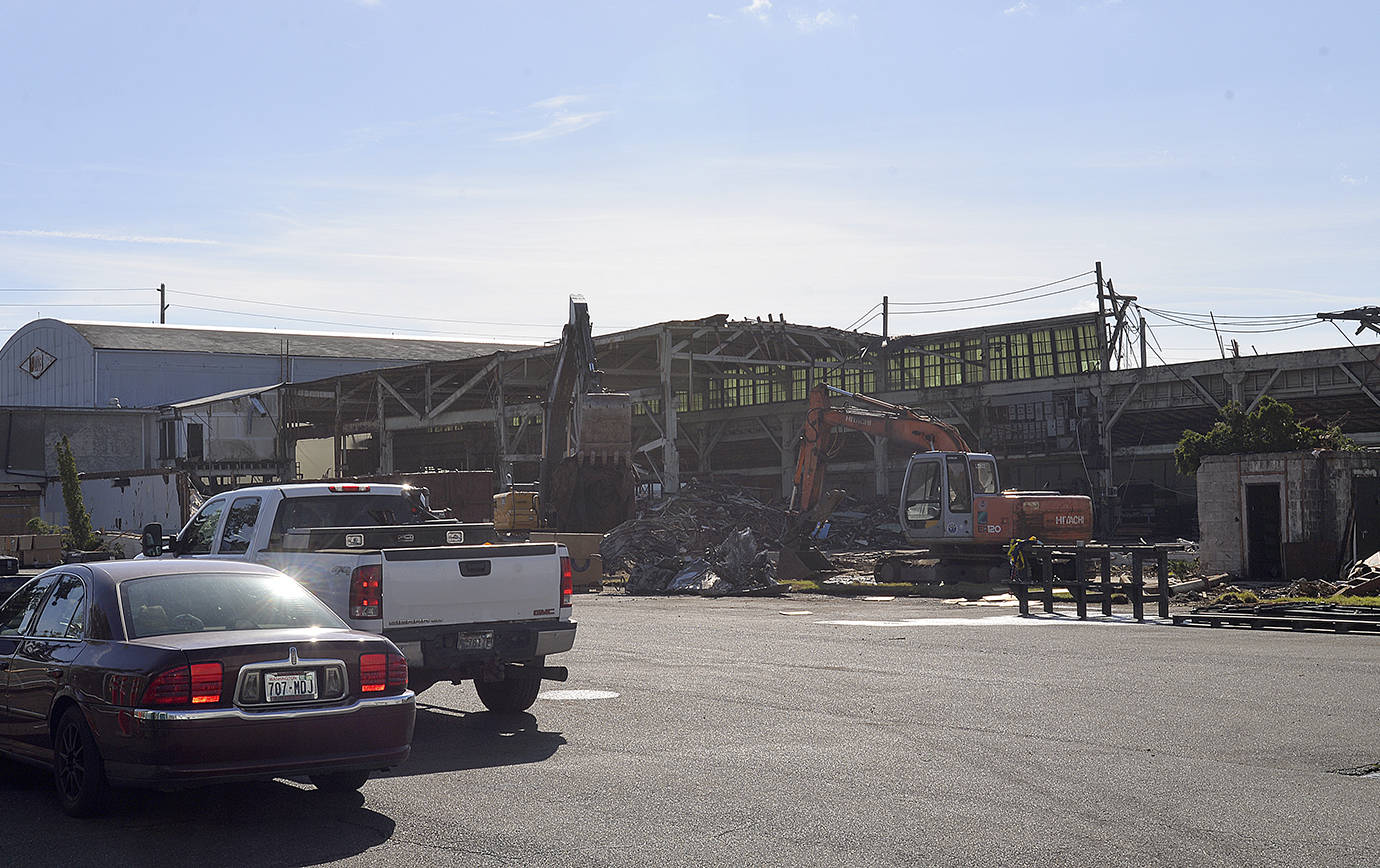A little more than a century after the Lamb Machine Company started construction at its Hoquiam location, demolition is under way on at least a portion of the facility.
A building permit filed with the City of Hoquiam simply said Rognlin’s Inc. has been hired for the demolition work. The facility is in west Hoquiam just off Emerson Avenue. Work was progressing Monday with crews knocking down a large section of the west end of one of the buildings.
The walk-through request indicated it would be the west end of the building that would be demolished, then a footing poured and 2×6 wall erected to create a new exterior wall on the remainder of the building. That remainder is the portion along South Adams, also with a wood frame but with a concrete floor and pillars. This 17,742-square-foot area housed an assembly area with two heavy cranes.
As for why demolition was happening now, Polson Museum director John Larson could only speculate it’s because the building has been vacant for an extended period of time; Lamb shut down operations in June of 2001, when it had about 100 employees. In the 1980s the company employed 500 people.
Attempts to contact the Lamb family were unsuccessful Monday.
History
The company was founded in 1912 by Hoquiam pioneer Frank Lamb. The company specialized in the design and fabrication of state-of-the-art timber industry machinery.
Lamb announced in early February 1918 the company had purchased more than 6 acres of land in Hoquiam to build a modern fabricating facility. Construction began about a month later. The iron foundry, located previously on Levee Street, was moved into the new factory in late July 2018, and the plant was operational within a few days, according to articles from the Grays Harbor Washingtonian newspaper — which operated out of Hoquiam from 1908-1931 — compiled by the Polson Museum.
In 1928, after the company took over Grays Harbor Iron Works, the company became known as Lamb Grays Harbor Co.
The company developed cable railway machinery and tracked log yarders for the timber industry. In the mid-1930s, the company focused on the pulp and paper industry, delivering the first pulp cutter in 1938, according to information from Legacy Automation, which began operations in 2001 and calls itself the exclusive licensed source for all Lamb Grays Harbor Co. technologies, designs and associated services.


